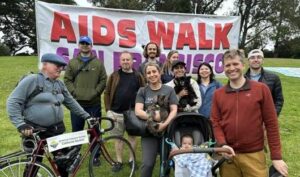Calendar

Cal ACS returns to Lincoln Elementary School in Richmond for STEAM Night (Science, Technology, Engineering, Art, and Math) on Tuesday, May 13th, 2025.
Mariana Alves will open the evening with a dramatic chemistry show. Our volunteers will present hands-on activities related to this year’s Earth Week theme, “Glaciers: Hot Topic, Cool Chemistry” plus other old favorites, including the chemistry rainbow demonstration and, of course, liquid nitrogen ice cream. The Chevron Slime Team will be there as well, and Lincoln Fab Lab will exhibit their latest creations.
We’re still looking for a few extra hands, so please contact Michael Cheng if you would like to join us!
Enjoy a fun-filled day of celebration, unity, and diversity at our Cal ACS Pride & Juneteenth Celebration Picnic!
Let’s come together as the California Section of the American Chemical Society (Cal ACS) community to honor our past, celebrate the present, and build a brighter future. This marks our third annual PRIDE & Juneteenth celebration, and we’re proud to continue this meaningful tradition of joy, solidarity, and inclusion.
This event is not just a celebration—it’s a statement of unity and a commitment to uplifting and protecting our diverse community.
Everyone is welcome—this event is open to all!
You do not need to be an ACS member to attend. Whether you’re a longtime member, a friend, family member, or part of the broader community, we’d love to celebrate with you.
🌈🎉 Event Highlights:
- Fun and engaging trivia about Cal ACS, Juneteenth, and PRIDE (plus a few surprise topics!)
- Exciting prizes for trivia winners
- Delicious food and refreshments provided
- Networking opportunities with fellow participants
- Scenic picnic setting under towering redwoods
- Located just across from a swimming pool and fishing dock
Join us for a day of fun, learning, and community spirit in a beautiful natural setting.

Join us for our third year walking as the Cal ACS team at the SF AIDS Walk!
Cal ACS—the California Section of the American Chemical Society—is proud to continue our tradition of community engagement and advocacy by participating in this meaningful event. Each year, our team grows stronger and more diverse, united by a shared commitment to science, compassion, and social impact.
Whether you’re a returning walker or joining us for the first time, we welcome you to be part of our team. Come walk with us, bring your friends and family, or support our efforts by donating. Every step and every contribution counts in the fight against HIV/AIDS.
Let’s show up as a community of scientists and allies—walking together for change.
The Silicon Valley and California Sections of the American Chemical Society welcome you to the Western Regional Meeting (WRM)!
Moreover, the Bay Area is characterized by a high concentration of venture capital and start-up companies, which are instrumental in helping to translate academic research into practical industrial applications. Additionally, the area hosts numerous tech-focused events and conferences that facilitate networking, discussions and collaborations between industry professionals and academic researchers. This vibrant ecosystem promotes the seamless transfer of knowledge and technology, making the San Francisco Bay Area a prime example of the theme in action.
The Bay Area is truly international because of its diverse population and strong ties with other communities across the globe. WRM 2025 will showcase these connections.
We look forward to welcoming you to WRM 2025, where scientists from the Western Region and beyond will gather to share their innovation while creating new connections! See you in San Jose, CA!

